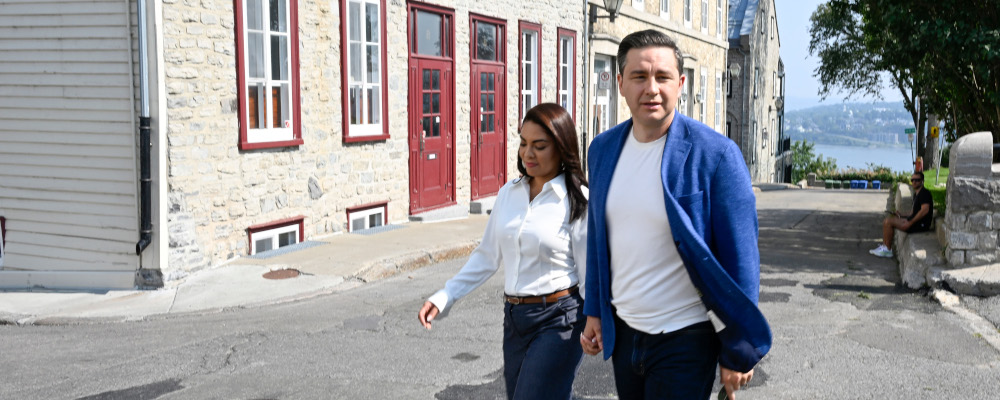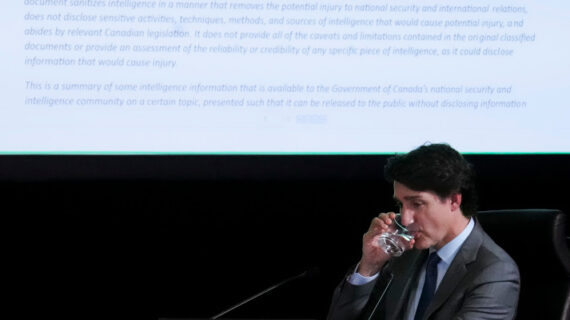The saintly editors here at The Hub have agreed to my request to produce one of my two monthly articles for the site as a monthly transatlantic diary. For those readers not familiar with the format, which is more common in British journalism, the diary is a grab bag of short items, sometimes on a common theme, but often not. In my case, what they have in common is that they are either too inconsequential to merit a full article or I can’t be bothered to come up with more than a knee-jerk reaction or a flip comment. This is September.
“The harvest is passed, the summer is ended, and we are not saved.”
It is with good reason that Keats’ “To Autumn” is the go-to poetic reference for the arrival of fall. That opening line about the “Season of mists and mellow fruitfulness” is cosier than a tartan wool blanket, but for me, literary thoughts of autumn call me back to Shallow’s orchard, as described by Kenneth Tynan in his review of the Old Vic’s 1945 production of Henry IV, Part II.
Tynan is one of those curious figures who must exist in every age: the literary prodigy who plateaued. At only 23 Tynan published the best collection of theatre criticism of the twentieth century, He That Plays the King, much of which he wrote in his late teens. Here is how he described the scene with Falstaff (Ralph Richardson), Shallow (Laurence Olivier) and Silence (Miles Malleson):
[I]f I had only half an hour more to spend in theatres, and could choose at large, no hesitation but I would have these. Richardson’s performance, coupled with that of Miles Malleson as Silence, beak-nosed, pop-eyed, many chinned and mumbling, and Olivier as Shallow, threw across the stage a golden autumnal veil, and made the idle chatter of the lines glow with the same kind of delight as Gray’s Elegy. There was a sharp scent of plucked crab-apples, and of pork in the larder: one got the sense of life-going-on-in-the-background, of rustling twigs underfoot and the large accusing eyes of cows, staring through the twilight. Shakespeare never surpassed these scenes in the vein of pure naturalism: the subtly criss-crossed counterpoint of the opening dialogue between the two didderers, which skips between the price of livestock at market and the philosophic fact of death … is worked out with fugal delicacy.
When I first read that passage, it made me ache to have missed the performance, but it doesn’t anymore. I don’t see how the scene could have surpassed the 18-year-old Tynan’s description and his generous record is more than enough for me. It is worth seeking out the full review, which I commend to anyone who wants to feel the giddy power of great prose. As it happens, Tynan is buried in Holywell Cemetery in an overgrown corner of Oxford and every few months I visit his grave, which is close by those of two other notable writers, Walter Pater and Kenneth Grahame. From the tangled ivy, I don’t think anyone else does.
* * *
September began with a flying visit to Quebec City for the Conservative Party convention. En route, I sat next to one of those new airplane windows that, instead of being open and shut by a flimsy shutter, dims and brightens according to some technological wizardry embedded in the glass. I’d encountered these shady portals before, but this was the first time my window—all the cabin windows, in fact—had been permanently set to “dark.” I flagged down a flight attendant, who told me that it was “so that passengers could sleep” as even one “open” window would “flood the cabin with light.” I observed that it was 2:30 in the afternoon, and that if people wanted to sleep during the day, they should expect to have to put up with sunlight. Whether she agreed or not, she went away and duly released the child lock on my window.
I don’t know exactly why I find this new technology so sinister, but I think it’s a normal human reaction to corporate control of our lives and technological manipulation of our world. The airlines want us subdued, preferably somnolent, even if it means controlling our access to the natural light just outside our window. Well, I don’t like it one bit. If Air Canada wants us to sleep, it can make good red wine available for free in all classes on domestic flights, but give us back control of our windows.
* * *
Although I spent most of my time in Quebec City holed up in the stuffy convention centre, I did manage a little sightseeing on my last day. Seventy years ago, Norman Levine wrote of the city that “people will come here to see this as something out of a museum, a museum piece, when the rest of the country has been swallowed up into a sameness.” His prophecy is slowly coming true. People are coming—the Old Port was teeming with American tourists—and the city has resisted the curse of modern “sameness,” but the beauty does feel like a museum piece.
The stone streets are as charming as ever, even if the quality of the art galleries has declined to cater to cruise ship tastes, but you have to look closely to find traces of the city’s old culture. In some cases it is hiding in plain sight, in street names like Rue de Brébeuf, Rue Sainte-Anne, and Rue Sainte-Ursule, and the imposing facade of the Monastère des Ursulines in the heart of the old city. Other reminders are more subtle, like the simple bust of Jean-Paul Lemieux gazing up the curve of Côte de la Montagne at the view he captured in his two great paintings of Quebec, La Fête-Dieu à Québec and Notre Dame protégeant Québec, a decade before Levine visited. I wonder what he sees now.
* * *
For evidence of the Conservative convention’s success, you only had to see the media’s evident disappointment at the absence of gaffes and controversy. Even the Liberals’ half-hearted attempt to crash the party felt more like muscle memory than a planned response. Steven Guilbeault showed up to accuse the Conservatives of not believing in science, looking like he’d offset all the carbon he burned flying in from Beijing by not bothering to wash. He was followed by Pablo Rodriguez, shirt unbuttoned halfway to his navel like a lubricious Italian film director entering rehab, rambling about right-wing Republicans. I almost felt sorry for them. They sounded like a band with one hit that no one wants to hear anymore. They looked like they knew it too, but they don’t know any other tunes.
* * *
After Quebec, it was off to Kelowna for a legal workshop on the separation of powers, which contrary to what you might think was a delight from start to finish. It was capped by a public lecture from Supreme Court Justice Malcolm Rowe, which was genuinely thoughtful and insightful—and not just in comparison to the dire standard of most speeches by Canadian jurists (the very worst being the bromidic homilies of former Chief Justice McLachlin). After, we drove up the hill to Quail’s Gate winery for dinner, which required several sobering detours around recently burned areas of West Kelowna. I always enjoy dining at Canadian wineries, because they are just about the only place in the country you can find properly-aged local wines, in this case the estate’s 2014 Chardonnay and 2013 Pinot Noir. It is frustrating that, while one can find old French or German wines for sale in Canada, it is impossible to drink our own age-worthy wines at their best unless you cellar them yourself. Thank goodness for winery restaurants!
* * *
On the very last day of the month, I arrived back in Oxford, where the low mist and sweet smell of burning leaves finally convinced me that summer is officially over. We are in the home stretch of the year, the season when “langað seo niht and wanað se dæg”—the night lengthens and the day wanes. Like a daytime Air Canada flight, we look ahead to days of growing darkness, a time to nest and work. At least that’s my hope for a productive Michaelmas Term.




